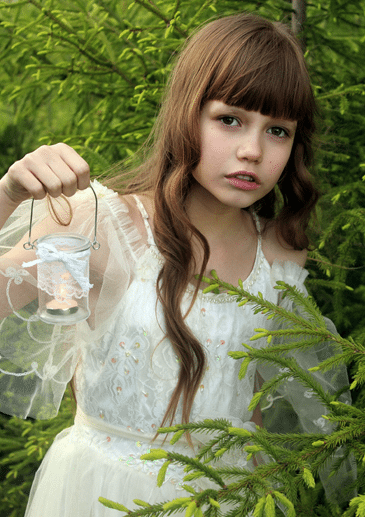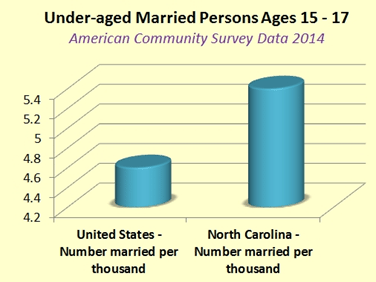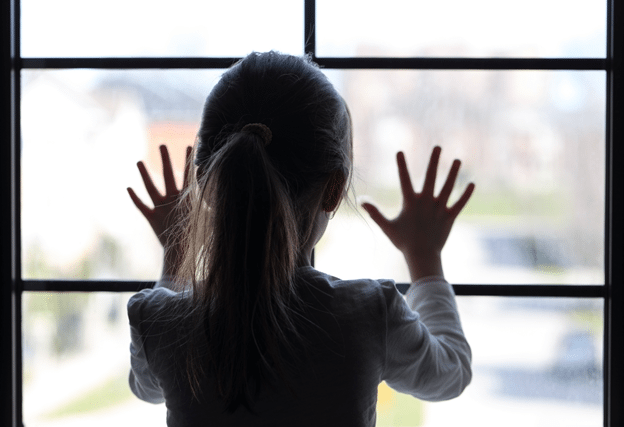

Child Marriage or Underage Marriage Should be Considered Carefully.
Although child marriages are a greater problem in developing countries, almost forty years ago, a proclamation issued by the United Nations proclaimed that early marriage is a practice States should work to end. The United Nations formally recognized the detrimental impact of child marriages on girls and women when they stated:
“Traditional cultural practices reflect values and beliefs held by members of a community for periods often spanning generations. Every social grouping in the world has specific traditional cultural practices and beliefs, some of which are beneficial to all members, while others are harmful to a specific group, such as women. These harmful traditional practices include:
- Female genital mutilation (FGM)
- Forced feeding of women
- Early marriage or Underage Marriage
- The various taboos or practices which prevent women from controlling their own fertility; Nutritional taboos and traditional birth practices
- Son preference and its implications for the status of the girl child
- Female infanticide
- Early pregnancy
- Dowry price
Despite their harmful nature and their violation of international human rights laws, such practices persist because they are not questioned and take on an aura of morality in the eyes of those practicing them.”
A decade later, in 1989, the United Nations resolved that a child is a person under the age of 18.
The United Nations position is based on research demonstrating the harm caused to women who marry when they are children.
Detrimental Impacts of Child Marriage or Underage Marriage
It is interesting to note the company early marriage keeps on the above list. Most of the other practices the UN cited are repugnant to Americans. Child marriage remains the only widely accepted practice on the list. Early marriage or underage marriage has detrimental effects on women including:
-
Increased mortality for child brides and for their offspring
- Increased incidence of premature birth
-
Young girls are often coerced into marriages
- Psychological manipulation is common
- Physical threats and threats to disown or throw the minors out of the house are often used to force them into early marriages or underage marriage

- Marriage frequently results at the end of a child’s formal education and the end of their dreams involving formal education
- Child brides experience domestic violence than women who marry when they are adults
-
Child brides suffer from worse mental health outcomes than women who marry when they are adults
- “The overall lifetime and 12-month rates of psychiatric disorders were higher for women who married as children.”
- “The overall lifetime and 12-month rates of psychiatric disorders were higher for women who married as children.”
-
Reduced ability to leave the marriage due to:
- Lack of knowledge
- Lack of education and marketable skills
- Lack of ability to contract with an attorney
- Lack of status as an adult to obtain a protective order
- Most shelters for women escaping domestic violence cannot assist child brides who are considered runaways when they leave their marital home.
The US State Department considers formal and informal unions where at least one person is under the age of 18 a “harmful practice with negative health, education and economic repercussions for girls, families and communities.”

How Prevalent are Child Marriages or Underage Marriages in North Carolina?
North Carolina’s rate of child marriage is higher than the national average but not as high as some other states.

What Does Child Marriage or Underage Marriage Look Like?
Most child marriages do not involve two children. In the majority of cases, the husband is an older man, often a much older adult male. Sometimes, the adult male is two or three times as old as the child bride. What would be a serious child molestation case in any other situation is given the cloak of legality through child marriage. In some states, marrying a minor who it is illegal to have sex with eliminates the risk of child molestation charges even when sex occurred before marriage. It’s as if the law says it is okay to take advantage of a child if our intentions were to marry the child.
In Idaho, a 14-year-old child who got pregnant after a 24-year-old got her drunk married him so he wouldn’t go to prison which could have come with a life sentence. The child was worried the father wouldn’t be able to help her with the child she decided to keep. Eventually, both the father of the 14-year-old and her husband went to jail. The prosecutor decided to prosecute the 24-year-old for being intimate with the minor before the intimacy was protected by their marriage. Her husband was sentenced to serve fifteen years of a possible life sentence. Her father, who venue shopped to find a State where he could consent to the marriage without his daughter’s mother also consenting, was convicted of injury to a child for allowing his daughter to marry her rapist.
In a Georgia case, a 37-year-old mother married her son’s fifteen-year-old friend to avoid child molestation charges.
Although children forced into child marriage or underage marriage are usually girls, The US State Department reports that 15% of the cases involve boys.
The Tahirih Justice Center is working toward changing laws to provide children with more safeguards. They have a website with resources to help someone who is being forced into a child marriage. If you are being threatened, abused, held hostage, or deprived of food you may also be able to get help from the Domestic Violence Hotline.
The US State Department provides assistance to US citizens forced into child marriages overseas on their website where they state, “We view forced marriage as a human rights abuse and, in the case of minors, a form of child abuse.”

North Carolina Requirements
If, after considering the risks, you believe it is in the best interest of the minor to marry, the following requirements must be satisfied in North Carolina. The minor and the adult providing consent must also provide the documentation required of adults who are getting married in the county relating to identification and their Social Security number.
Children ages 16 – 17
Minors who are sixteen or seventeen years old may marry if they meet the following requirements.
- They must present a certified Birth Certificate.
-
An adult who is legally responsible for them must also appear with them at the Register’s Office with documentation showing their legal relationship to the minor and provide consent to the marriage. Individuals with authorization to give consent include:
- The custodial parent
- Either parent, if the minor resides with both parents
- Someone else with the legal authority to consent to the marriage
- The parent or legal guardian must provide legal documentation to prove that they are the custodial parent or legal guardian.
An emancipated minor is not required to obtain permission from a parent or guardian to marry. A certified copy of the final decree or certificate of emancipation is required.
Children ages 14 – 15
You are required by law to have a court order authorizing the issuance of a marriage license. You must present a filed original, or a certified copy, of the court order.
When a female is pregnant or has given birth to a child and the putative (presumed) father of the child, wish to marry and both of them are over fourteen years old and either of them is under age 16, a petition may be submitted to the district court judge to authorize their marriage. In determining whether or not to authorize a marriage, the judge will consider:
- Whether the underage party or parties is capable of assuming the responsibilities of marriage.
- Whether the marriage will serve the best interest of the minor or minors.
- The opinion of the parents of the underage party about what is in the best interest of the minor.
- The opinion of any other adult with legal responsibility for the minor.
- The opinion of a court-appointed guardian ad litem about what is in the best interests of the minor child.
- The relationship between the underage party and their parents or another adult with legal responsibility for the minor.
- Any other evidence that is useful in making the decision
When all the child’s living parents oppose the marriage, there is a rebuttable presumption that the marriage of a minor will not serve the best interests of the child.
If the Court orders that a marriage may occur, the couple can bring a certified copy of the District Court order to the clerk together with the documentation shown below to obtain a marriage license:
- Social Security card or proof of number (i.e. Social Security card or W-2 Form), and
- Certified copy of birth certificate
Minors under Age 14 cannot marry in North Carolina.
Sources of images:
Pixabay.com
Others are from:
Dollarphotostore.com
Fotolia.com
Adobestockphotos.com

